Along the Balkan route migration has become increasingly controlled by criminal networks. More and more smugglers appear to be exploiting restrictive EU border policies and subjecting migrants to extortion and abuse. While NGOs provide some support, the lack of coordinated protection and institutional challenges leave migrants vulnerable to exploitation along the route.
In the borderlands of Serbia, Bosnia and Hungary, the migration ecosystem is constantly evolving. As European Union border policies grow increasingly restrictive, migrants are being pushed into more dangerous and clandestine routes controlled by sophisticated criminal networks, think NGOs who work with migrants along the routes.
The closure of border camps has not halted migration in this region, instead, it has transformed it into a high-stakes underground operation.
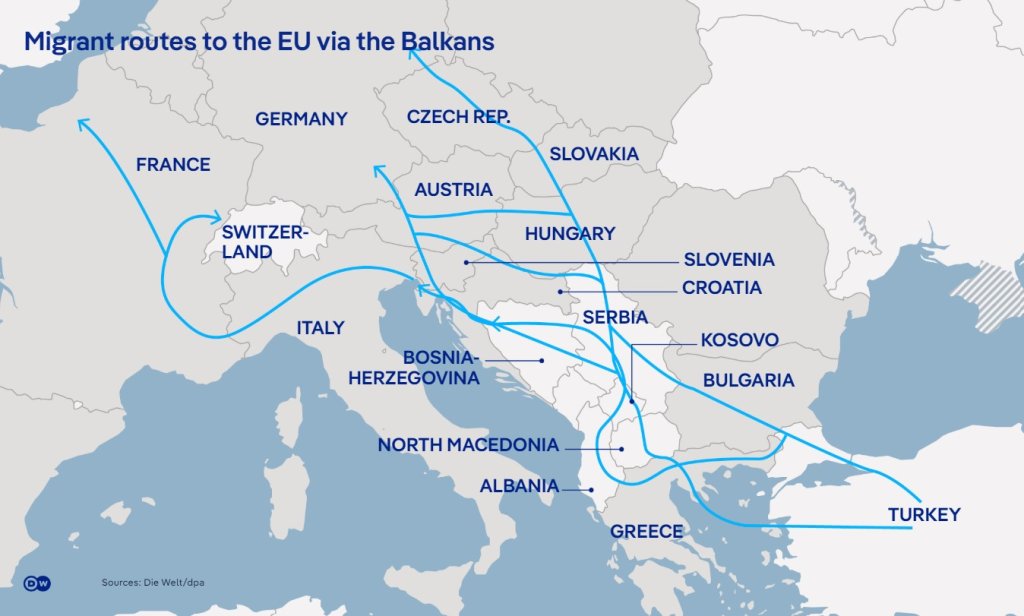
Milica Švabić, from the organization KlikAktiv (a Serbian NGO developing social policies), explains that "unfortunately, more and more refugees are reporting abductions, extortions, and other forms of abuse by smugglers and criminal groups in the previous months." She notes that groups of Afghan smugglers are currently operating both on the Serbian-Bosnian border and the Serbian-Hungarian border. KlikAktiv has been collecting testimonies of abuses committed at both borders.
Read AlsoA cat-and-mouse game: How migrants and smugglers adapt to AI border technology
Changing landscape of smuggling networks
The migration landscape in Serbia has dramatically shifted. Where makeshift camps once dotted the border regions, now migrants are hidden in private apartments across urban centers, moved under cover of darkness. Afghan criminal gangs and local networks have seized control, creating an elaborate smuggling infrastructure that operates beyond institutional oversight. These networks have adapted to restrictive border policies, turning human movement into a complex logistical challenge that prioritizes secrecy over safety.
Švabić tells InfoMigrants that the NGO has also documented "cases of refugees being abducted and kept in isolated locations (usually private apartments or houses) until their family pays a ransom for their release." This ransom often goes up to several thousand euros, she adds.
These testimonies are echoed in a recent investigation by the regional news platform Balkan Insight BIRN. In a recent report, they uncovered how BWK members, (a notorious Afghan gang operating in Bosnia) have held asylum seekers hostage in forest camps, demanding ransoms from relatives while subjecting them to horrific abuse, reportedly including rape and physical torture. Sometimes, these acts are filmed and sent to families as proof of life.
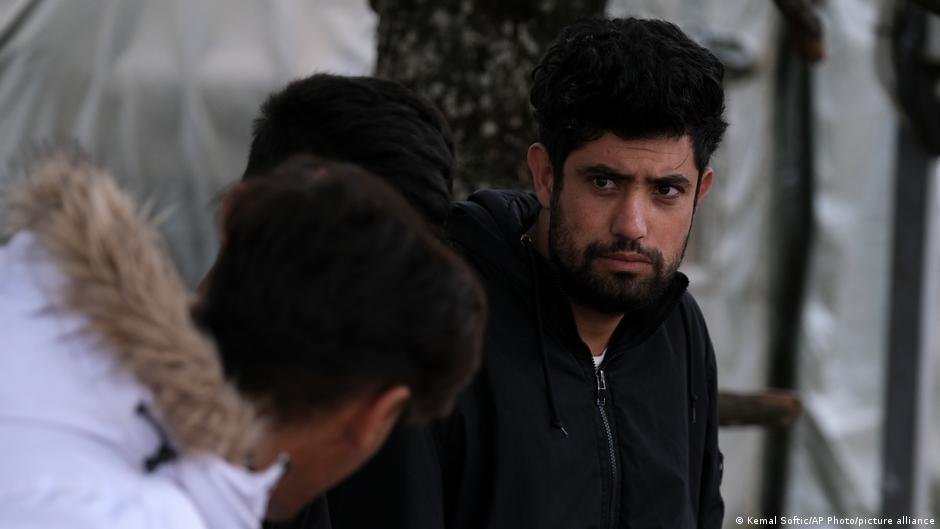
Rados Djurovic, the director of Serbian NGO Asylum Protection Center, notes too that smugglers are using private apartments and hidden locations in large urban areas to hide people, mistreat them, and organize border crossings. "These operations have become increasingly violent as smugglers use force to enforce their control and extract bribes. They kidnap people, hold them in these flats, and extort money from their families abroad," he says.
Other rights groups and migration experts have reported similar cases, indicating that this violence is widespread along the Balkan Route. Roberto Forin from the Mixed Migration Center (MMC) states that a recent report by the organization titled "Mixed migration in the Western Balkans" documents a range of abuses and protection risks faced by migrants and refugees, including robbery, physical violence, and extortion. He points out however, that "it does not specifically identify armed groups of Afghan origin as perpetrators. However, respondents frequently reported being targeted by smugglers and criminal networks, sometimes involving violence and coercion."
Read AlsoUK: Afghan nationals arrested for having ties to Europe-wide smuggling network
The impact of border policies and pushbacks
Many rights groups argue that the increased security measures are partly responsible for this evolution in the situation, because they essentially force migrants to rely more heavily on smugglers, because due to increased controls, border crossings have become more difficult to navigate, pushing migrants into increasingly dangerous situations.
A spokesperson for the Border Violence Monitoring Network (BVMN) stated that in their view "the appearance of such groups is simply the consequence of the growing securitization of border regions throughout Europe. As European border regimes deploy increasingly violent methods to prevent migration, migrants are left with no other choice but to rely on informal methods to cross borders."
This view was also echoed in a recent report by the Mixed Migration Center.
BVMN added that ultimately, "it is people on the move who bear the lion's share of the violence, whether at the hands of state authorities or the very groups that claim to help them on their journey."
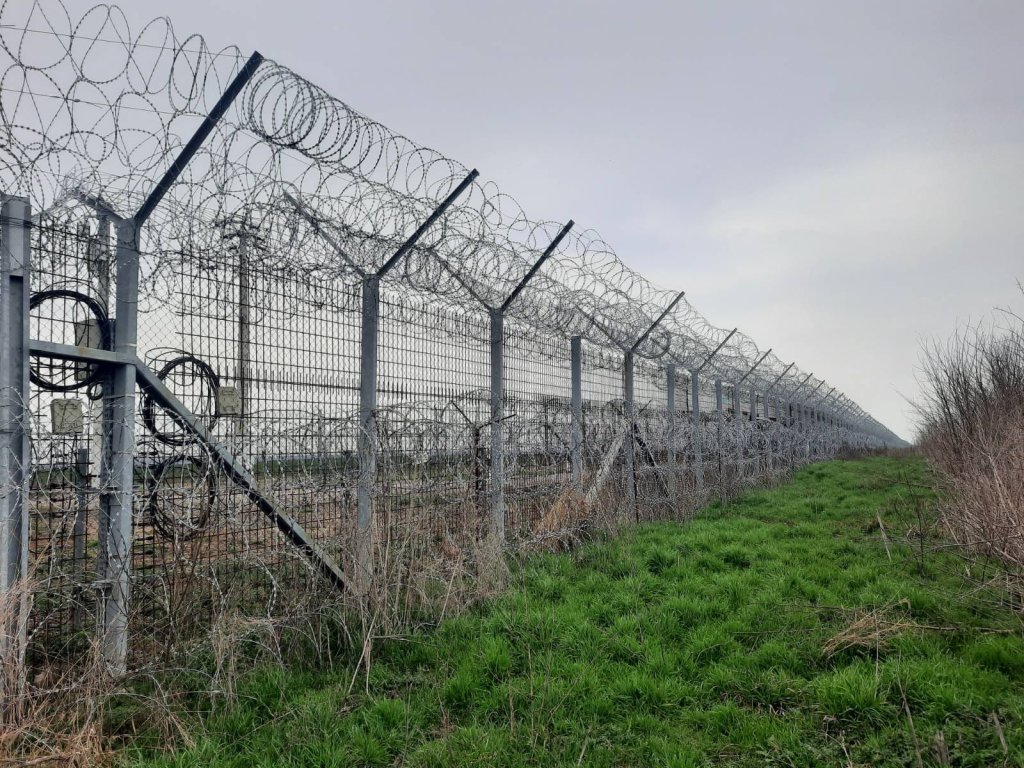
Several experts and rights advocates also draw a clear connection between restrictive border practices and the increasing reliance on smugglers.
Forin warns that "border violence and restrictions exacerbate migrants' vulnerability to exploitation and abuse. Pushbacks often force individuals to take more dangerous routes and rely on smugglers, increasing their exposure to criminal actors."
Djurovic also highlights the "direct link between pushback practices at the Hungarian border and the rise in smuggling -- both in scale and in violence."
This sentiment is shared by other rights activists such as Švabić who claims that these policies make them them completely dependent on their services -- not only to attempt border crossings but also to reside in transit countries along the route, she says.
"Out of fear of pushbacks and violence, migrants are avoiding state institutions and authorities, placing their trust in smugglers, who often exploit this trust," Švabić adds.
Read AlsoPassing through: Croatia's 'invisible migrants'
Role of criminal networks
The BIRN report reveals that BWK members, some reportedly holding EU-issued IDs based on protection status they were allegedly issued by Italy. According to BIRN, some of the suspected gang members may have used these documents to move seamlessly across Balkan borders, thus evading arrest. InfoMigrants approached the Italian authorities about these allegations, but they declined to comment.
Their alleged violence is, in part, enabled by state neglect and even allegations of violence and pushbacks that have been levelled at numerous authorities along the Balkan route, allegations often vehmently denied by the states concerned. For migrants themselves, there is a kind of feedback loop of trauma: asylum seekers are allegedly beaten by some authorities only to be captured by gangs once they return and then suffer similar treatment at their hands too.
Lawrence Jabs, a researcher at the University of Bologna, stated in the BIRN investigation that there is "definitely a connection between pushbacks and the hostage-taking. If you wrote it descriptively without giving any context, it would just look like the same people," he reportedly said.
The BIRN findings highlight a broader issue in the Balkans: organized crime thrives in areas where enforcement is violent and accountability is lacking. In some cases, BWK members have reportedly infiltrated state-run refugee camps via local fixers, who allegedly tip off gang members about upcoming border crossings.
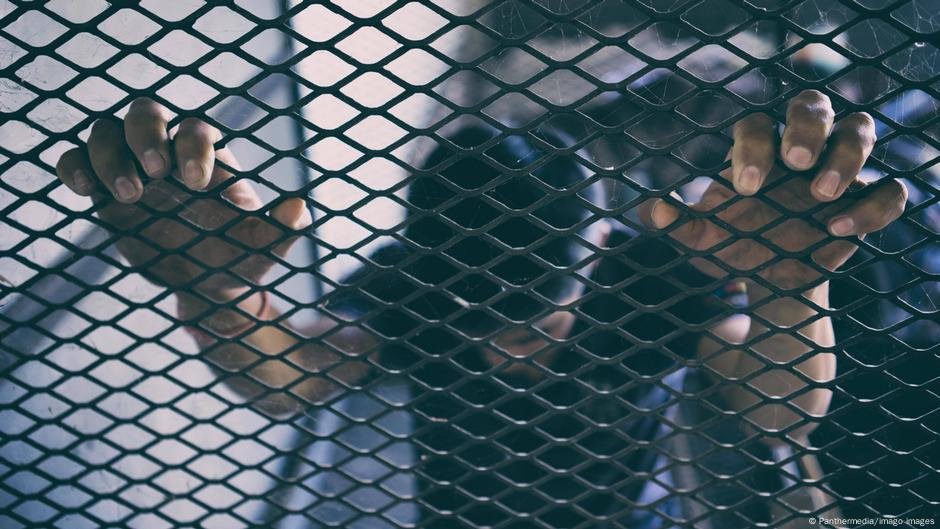
In October 2024, several suspected BWK members were arrested for abducting Turkish migrants and filming their torture. Police in Bosnia describe this extortion-based smuggling operation as "well-established and highly profitable," with some individuals associated with BWK reportedly holding bank accounts with over 70,000 euros in deposits.
The BIRN investigation describes how one of the most notorious gangs run by Afghan migrants actually benefit from protected status in Italy. Many migration experts also emphasize that the nature of these gangs is by definition transnational.
According to Djurovic "these networks aren’t solely made up of foreign nationals. They are often connected to local criminal groups. Sometimes migrants are even smuggling drugs for others -- always with local support."
These gangs often also rely on local drivers and fixers to facilitate border crossings.
Švabić tells InfoMigrants that these groups "involve both local and refugee populations. Each person has their role." However she notes that they have "documented people of refugee origin traveling legally in the EU to join these groups for material gain."
Read AlsoBosnian police arrest eight in migrant smuggling operation
Police response
Although Serbian police have arrested some smugglers, it is often only after violence has escalated and is spilling out into the rest of society.
On April 14, two migrant bodies were found near a cemetery in Obrenovac, on the outskirts of Belgrade. The forest around the cemetery has become an informal settlement operated by Afghan smugglers. The victims are assumed to be Afghan nationals, and both were reportedly stabbed to death. Two other migrants were injured -- one with a neck wound and the other with a nose injury.
Švabić says that "similar incidents have occurred in the past, usually between rival smuggling groups fighting over territory and clients."
In addition, the line between law enforcement and organized crime might also sometimes be blurred. In northern Serbia, particularly around Subotica and Sombor, smugglers have reportedly secured police protection, with some even reported to be collaborating directly with law enforcement, BIRN alleges.
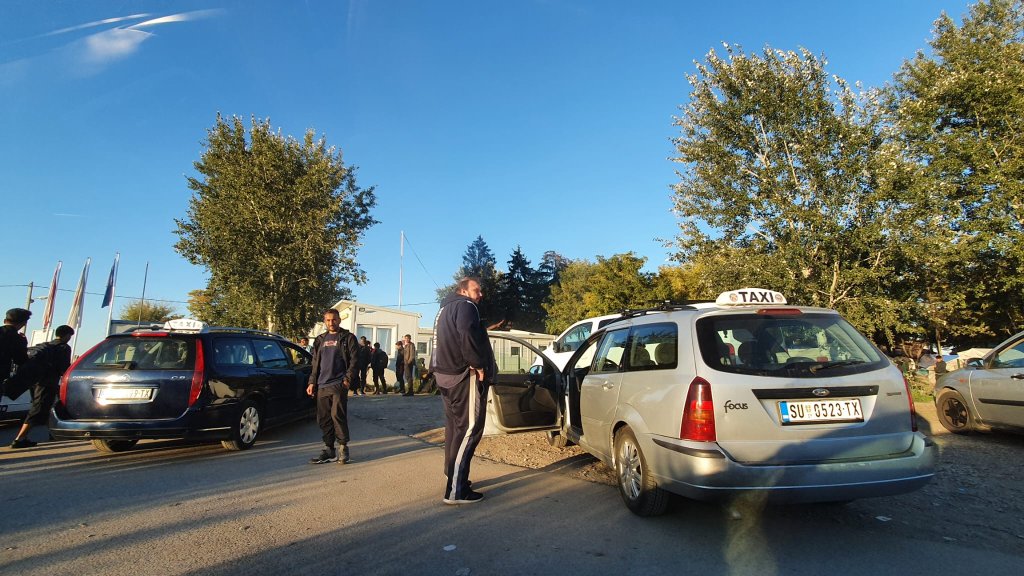
One high-profile case, reported by BIRN in 2022, involves a Serbian-Syrian translator, who previously worked with Serbia's Commissariat for Refugees and the police. According to a BIRN investigation, Basil is alleged to have run a smuggling operation with the help of officers on his payroll and was reportedly recorded organizing arrests of rival smugglers and coordinating kidnappings of collaborators. In February this year, BIRN published a follow-up saying the same man had been arrested, according to the Serbian chief prosecutor, on allegations of kidnapping a Turkish man and demanding a ransom. A case has not yet come to court.
Djurović notes that while Serbian authorities have taken steps to address smuggling networks, these efforts often appear more symbolic than effective. Although there is political will to be seen combating criminal gangs as well as irregular migration, the emphasis on public image may overshadow a genuine commitment to tackling the root causes.
He explains that the lucrative nature of the business and the involvement of the local population makes it "almost impossible to dismantle these networks." Djurović also highlights the futility of many police practices, for example people are being pushed back, only to be taken north or west again by smugglers the next day. The state invests significant resources -- manpower, fuel, transport -- while migrants end up paying even more to smugglers, he tells InfoMigrants.
Read AlsoEuropol dismantles major smuggling ring
Deterrence over protection
Despite efforts by NGOs, institutional support for refugees and asylum seekers remains fragmented and inadequate. The current approach prioritizes preventing irregular migration over providing meaningful protection, creating a vacuum in which smuggling networks can thrive. As Djurović puts it: "Instead of focusing solely on fighting irregular migration and smuggling, institutions should develop mechanisms to support those in need of protection."
He highlights the consequences of this approach, noting that "migration routes have changed -- they’ve moved out of sight from the media, the public, institutions, and camps. But that doesn’t mean people aren’t still crossing."
This shift has coincided with the closure of key camps along major transit routes. "Out of 17 camps, only five are still operating, and none are on major transit routes," he says. "The entire Vojvodina region in northern Serbia, bordering the EU, now has no functioning camps." Without access to accommodation and in the face of routine evictions, migrants are left with few options. "It strengthens smugglers. Smugglers then fill the gap by offering housing as a paid service," Djurović explains.
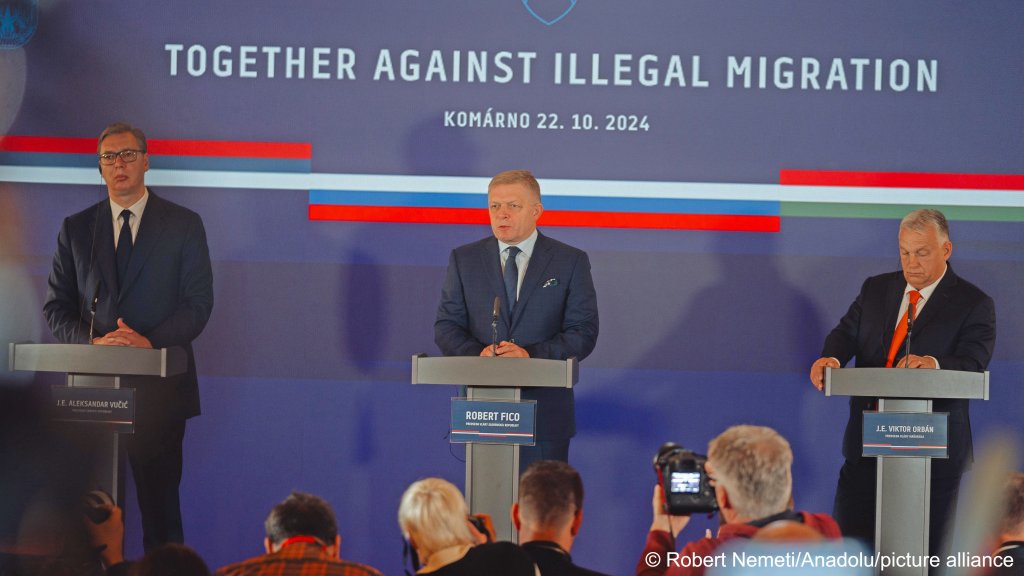
Efforts by humanitarian organizations to bridge these gaps are crucial, yet limited. As Forin notes, "while some NGOs provide legal and psychosocial support, coverage is inconsistent, and many migrants remain unaware of available services." He adds that no coordinated strategy exists to specifically counter organized smuggling gangs, leaving humanitarian actors to respond where they can.
At the same time, the lack of a protection-oriented approach appears to some politically expedient. According to Djurović, "they can claim that using violence, border police, and joint operations stops migration -- even though that’s not true. It’s a win-win: those labeled as 'foreigners' are targeted, and fighting migration becomes both politically and financially lucrative."
Serbia, he adds, with an agenda to eventually join the bloc, is eager to align itself with EU migration policies, noting that "right now, it wants to score points on migration."
Read AlsoEastern European leaders double down on anti-migrant rhetoric
Editor's note:
InfoMigrants contacted Frontex and the Italian government for this article, however both declined to comment on this matter.
InfoMigrants also contacted the Bosnian interior ministry, but had not received a response at time of publication.
